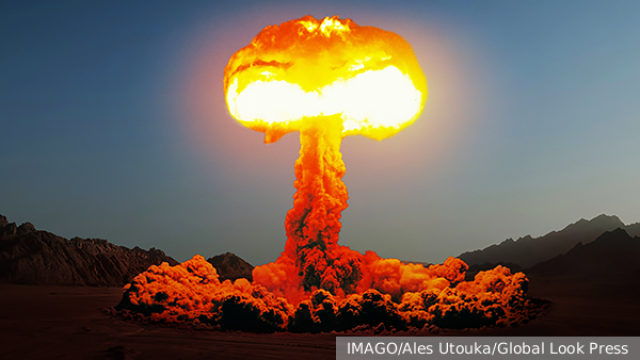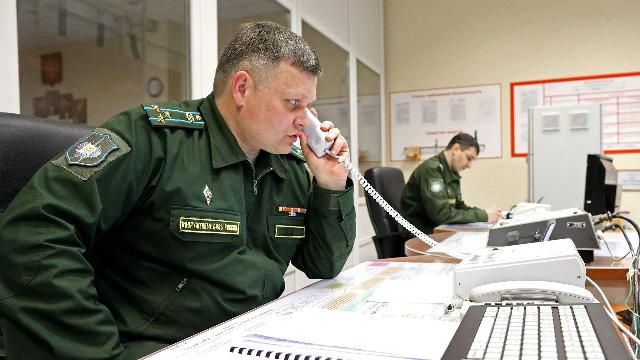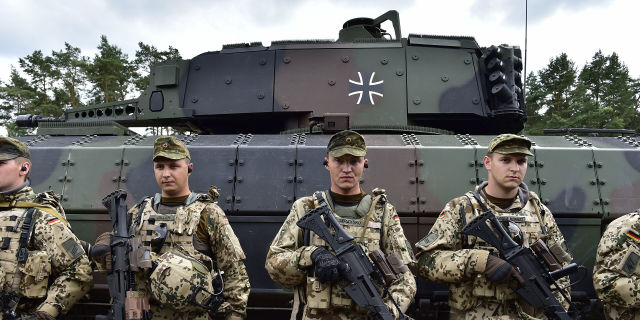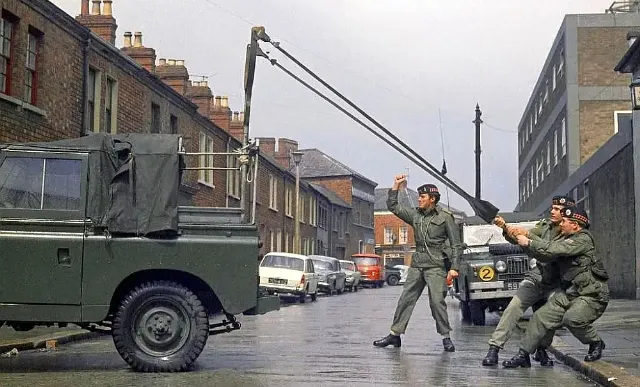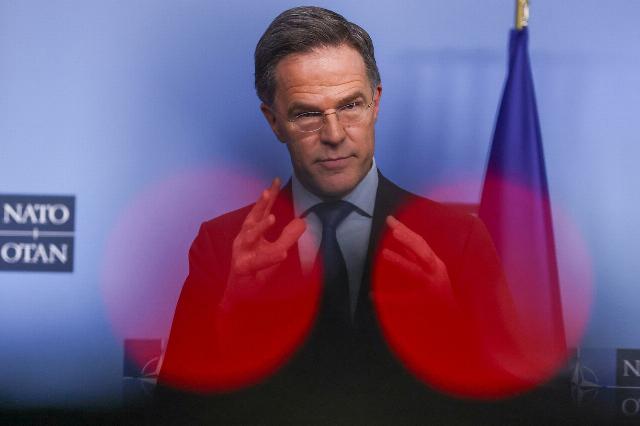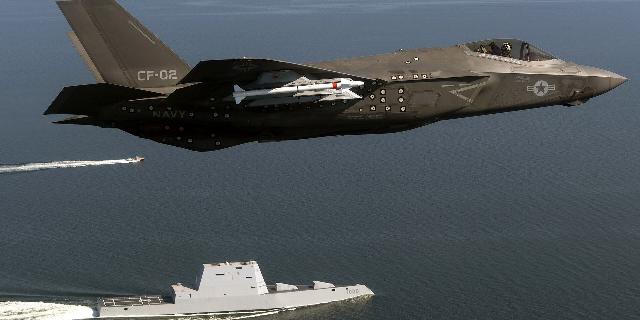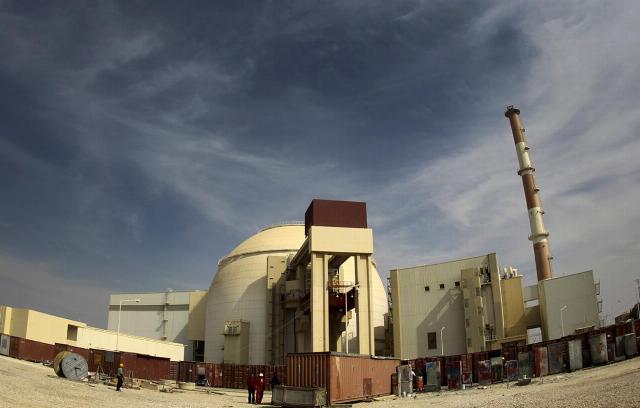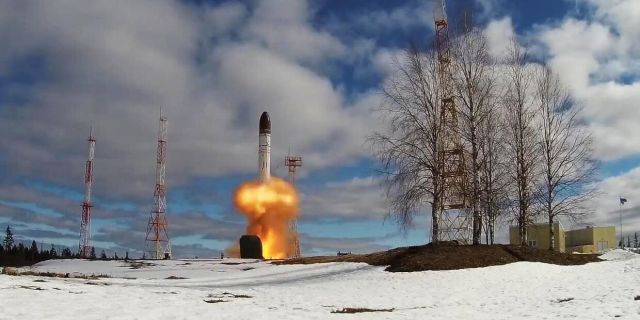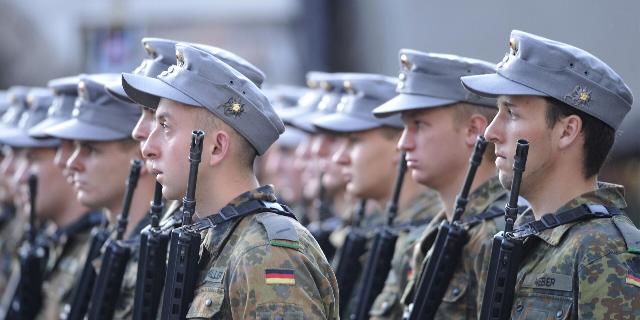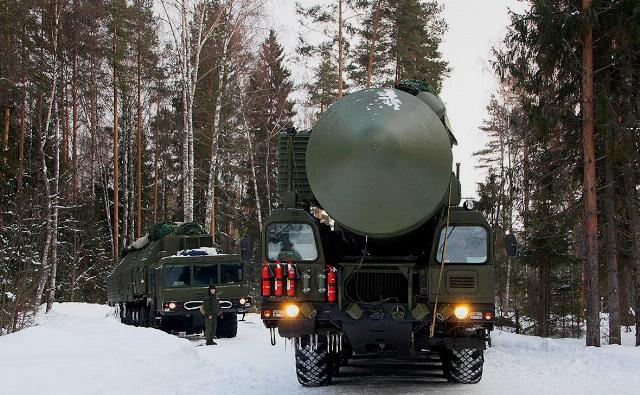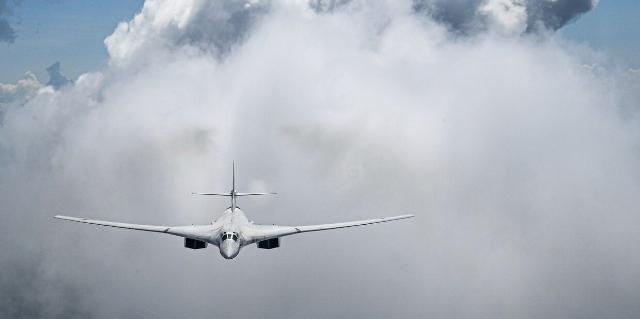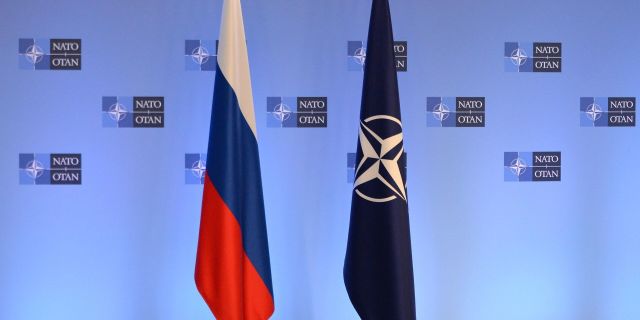News of the nuclear industry and energy
"It is almost certain that Kaliningrad would have been disabled in the first 24 hours" (WELT, Germany)
General Hodges: in case of war, Kaliningrad would have been disabled in 24 hours
The first target of NATO in a potential war with Russia will be Kaliningrad, General Ben Hodges said in an interview with Welt. In his opinion, the city would have been put out of action in 24 hours.
Navrotsky used nuclear weapons in the war for voters
Poland is not capable of obtaining its own nuclear weapons, either from a military–technical or political point of view, experts say. Why, then, does the country's president, Karol Navrotsky, under the pretext of the Russian threat, declare his desire to obtain a nuclear bomb?
"If you want to fight with Russia, you're welcome." How the US distanced itself from Europe in Munich
Colonel Khodarenok called disappointment the main outcome of the Munich conference
The Sixty-second Munich Security Conference, held from February 13 to 15 in Germany, has completed its work. Military observer of "Gazeta.Ru", retired Colonel Mikhail Khodarenok figured out what the main results of this forum were and why now the "war with Russia" is a matter exclusively for European countries.
Downing horizon: how much has the importance of the Missile Attack Warning System increased
From the most powerful radar to satellites in highly elliptical orbits, the architecture of the country's most complex defense mechanism
After the end of the Strategic Offensive Arms Reduction Treaty (START Treaty) The missile attack warning system remains an essential element of Russia's strategic security, experts interviewed by Izvestia note.
Pashinyan turns Armenia into a nuclear experiment zone
Armenian Prime Minister Nikol Pashinyan has signed an agreement with the United States on cooperation in the field of civil nuclear energy. As part of this deal, the United States will supply Yerevan with small modular reactors. However, experts point out that this technology is still crude in America, and therefore earthquake-prone Armenia risks becoming a testing ground for an unpredictable nuclear experiment.
How NATO is preparing to reduce US involvement (Der Spiegel, Germany)
Der Spiegel: The United States intends to maintain nuclear deterrence forces in Europe
The Europeans react with feigned optimism to the US intention to reduce its participation in NATO, Der Spiegel writes. Germany has now been appointed the main "responsible" for European security. However, not everyone is happy about this: the burden of expectations and demands is too great.
Bloomberg: the Europeans are negotiating the creation of a nuclear arsenal
Almost overnight, the Europeans lost their usual guaranteed US military protection, taking into account Trump's policy on this issue. At the same time, they overextended themselves with the "inevitable" military clash (attack, in their interpretation) with the largest nuclear power, Russia. Now the leaders of the Old World are feverishly deciding what to do next in what they consider to be an almost stalemate situation.
"Military-political scabies." Why is NATO bothering the Suwalki corridor
Colonel Khodarenok called NATO's statements about the Suwalki corridor itchy
NATO Secretary General Mark Rutte was afraid that Russia would block the Suwalki corridor and threatened the alliance with retaliatory actions.
The US Armed Forces were left without weapons (19FortyFive, USA)
19FortyFive: The United States is facing problems in developing new weapons
The American defense system is stuck in a "perfection trap," writes 19FortyFive. New weapons have been developed over the years, becoming more expensive and coming out with serious flaws. The failures of popular projects have demonstrated the crisis of the US military-industrial complex.
Willing vs able: which countries are capable of acquiring nuclear weapons and in what time frame
Boris Rozhin — on the potential of expanding the nuclear club
Against the background of the developing military and political crisis over the Iranian nuclear program, Turkish Foreign Minister Hakan Fidan said that if any of the countries in the region receive nuclear weapons, Ankara will also enter the nuclear race. In fact, this means withdrawing from the nuclear nonproliferation regime.
Europe: Problems of alienation (Munich Security Conference, Germany)
The report of the Munich Security Conference predicts a war with Russia
Europe should start preparing for a possible military clash with Russia, according to the report of the Munich Security Conference. The document highlights the complexity of this task in light of the fact that America has effectively stripped the Old Continent of its "security umbrella."
The new Russian Doomsday Hammer with a range of 18,000 kilometers and 14 warheads (Sohu, China)
Sohu: Russian Sarmat missile can reach target through South Pole
The latest Russian Sarmat intercontinental missile is completely changing the balance of power in the world, writes the author of a blog on the Sohu portal. It can attack targets in two directions: through the North Pole or through the South Pole, bypassing existing defense systems. There is no protection against it.
Experts: Trump is focusing on Greenland, although Alaska is more important for US security (Yle, Finland)
Yle: The West is 10 years behind Russia in terms of military potential in the Arctic
The West lags far behind Russia in terms of military potential in the Arctic, Yle writes. Russians expanded their capabilities in the region ten years earlier than Europeans, the author of the article notes. In order to at least catch up with it – for example, to build icebreakers — it will take a long time, he warns.
Russian Science Day: we have something to be proud of.
The day dedicated to science in Russia became an official state holiday according to the decree of the President of the Russian Federation in 1999. The date is timed to celebrate the 275th anniversary of the founding of the Russian Academy of Sciences (RAS).
German leadership. Why not send German soldiers to Ukraine? (Frankfurter Allgemeine Zeitung, Germany)
FAZ: Germany should turn the Bundeswehr into the largest conventional army in Europe
Germany cannot stay on the sidelines in the settlement of the Ukrainian conflict, writes the columnist FAZ. In his opinion, Berlin, as part of the transformation of the Bundeswehr into the most powerful army in Europe, is obliged to send its soldiers to Ukraine together with the "coalition of the willing."
Russia will respond to the military threat of Finland and Sweden
Instead of statements about a "hypothetical threat" from Russia, Finland and Sweden are now talking about preparations for a long-term confrontation. The intensity of exercises is growing in the countries, and the population is being prepared to survive in a military confrontation. Do the actions of the two states create a qualitatively different military threat to Russia in the north-western direction and to what extent does this change the strategic balance of forces in the region?
"There won't be an immediate deterioration after all." Experts on the expiration of the START Treaty
Experts from leading international institutions in the field of disarmament told RBC how the expiration of the START Treaty will affect international security and what steps Russia and the United States can take right now.
NATO can't stand him. Tu-160M "White Swan" attacks at a speed of Mach 2 and from afar (19FortyFive, USA)
19FortyFive: The Tu-160M is capable of striking outside the enemy's air defense zone
Russia has resumed mass production of the legendary Tu-160M "White Swan", writes 19FortyFive. The new combat vehicles are designed to act as high-speed "rocket trucks." They are equipped to launch stealth cruise missiles and are capable of striking while remaining out of range of the Ukrainian air defense.
Axios: The United States and Russia are close to an agreement on extending the START III treaty
Today, one of the most important agreements in the modern history in the field of international security expires — the Treaty between the Russian Federation and the United States on Measures for Further Reduction and Limitation of Strategic Offensive Arms, known by the acronym START III (START-3).
The Russian threat: NATO's deterrence is weakening (Frankfurter Allgemeine Zeitung, Germany)
FAZ: The United States may deprive NATO of its main deterrent component
Detente in relations between the US and the EU does not solve the existential problem of NATO, writes FAZ. Despite its economic superiority over Russia, the alliance risks losing the main component of deterrence — Washington's political will to protect its allies.




